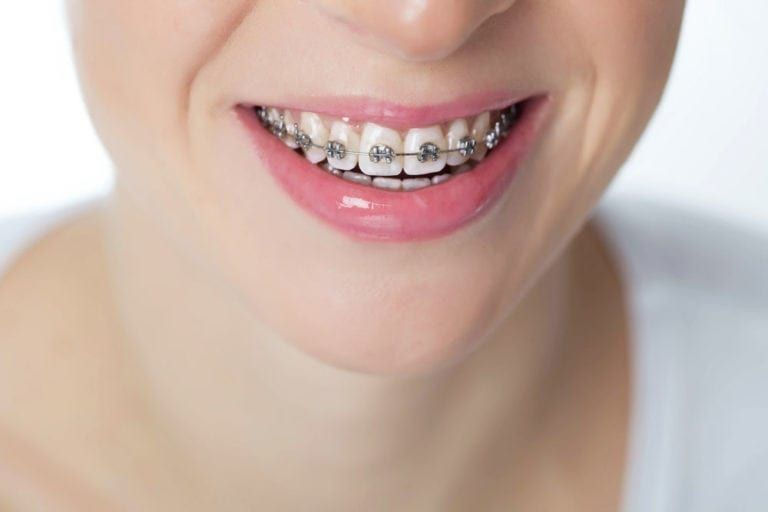How to Identify and Treat Teeth Grinding Early
- dclinicdubai
- Sep 23, 2025
- 3 min read
Teeth grinding, also known as bruxism, is a condition that often goes unnoticed until it causes serious dental or health issues. If you're waking up with jaw pain, experiencing unexplained headaches, or noticing worn teeth, you may already be showing signs of this habit. Early detection can prevent long-term damage, and with a wide range of options for teeth grinding treatment in Dubai, it’s easier than ever to take action before the condition worsens.

Recognizing the Early Signs of Bruxism:
Bruxism doesn’t always produce obvious symptoms right away, which is why it's essential to be aware of subtle early warning signs. These include:
Frequent headaches, especially in the morning
Jaw soreness or facial pain
Clicking or popping noises when opening the mouth
Flattened or chipped teeth
Unexplained damage to the inside of the cheeks
Increased tooth sensitivity
By identifying these signs early, you can seek appropriate treatment and prevent more serious complications.
Common Causes of Teeth Grinding:
Understanding what triggers teeth grinding can help you manage and treat it more effectively. The condition may be linked to one or more of the following:
Stress and anxiety
Sleep disorders such as sleep apnea
Misaligned teeth or bite issues
Lifestyle factors like excessive caffeine, alcohol, or tobacco use
Certain medications, particularly antidepressants
Pinpointing the root cause allows for more targeted and successful treatment strategies.
Diagnostic Methods Used by Dentists:
Dentists use several methods to diagnose bruxism, especially in its early stages. A thorough evaluation typically includes:
Visual examination for signs of tooth wear
Checking for jaw tenderness or muscle enlargement
Dental X-rays to assess underlying damage
Patient interviews to identify possible triggers
Early diagnosis is crucial for implementing preventive measures before extensive tooth damage occurs.
The Role of Night Guards and Splints:
One of the most effective early treatments for teeth grinding is the use of custom night guards or occlusal splints. These appliances:
Are worn during sleep to protect the teeth from further damage
Help reduce pressure on the jaw joints
Minimize muscle fatigue by cushioning the bite
They are particularly beneficial when bruxism is mild and hasn’t yet led to significant dental complications.
Stress Management and Lifestyle Adjustments:
If stress is a contributing factor, managing it can make a big difference in reducing teeth grinding episodes. Consider the following strategies:
Practice relaxation techniques such as deep breathing or meditation
Exercise regularly to reduce stress levels
Avoid stimulants like caffeine and alcohol in the evening
Establish a consistent sleep routine
These small lifestyle changes can significantly reduce the frequency and intensity of grinding.
Dental Correction and Orthodontic Solutions:
For individuals whose bruxism is caused by misaligned teeth or bite issues, dental correction may be necessary. Treatment options include:
Orthodontic braces or aligners to realign the teeth
Tooth reshaping to improve bite balance
Restorative procedures such as crowns or veneers
Addressing the structural issues of the jaw and teeth helps eliminate one of the major causes of grinding.
Innovative Medical Treatments Available:
For more persistent or severe cases, medical treatments offer additional solutions. These can include:
Botox injections: Reduce the strength of the jaw muscles, decreasing grinding activity
Muscle relaxants: Prescribed for short-term relief
Biofeedback therapy: Helps train the brain to avoid grinding
Modern dental clinics specializing in teeth grinding treatment in Dubai often provide access to these advanced options.
Importance of Regular Dental Checkups:
Ongoing dental visits are essential for tracking the progression of bruxism and ensuring early treatment remains effective. During regular checkups, dentists can:
Detect new signs of wear or stress
Adjust existing appliances like night guards
Recommend changes to the treatment plan if needed
Routine monitoring ensures that minor issues don’t escalate into major dental problems.
At-Home Techniques to Manage Bruxism:
While professional intervention is important, there are also simple practices you can adopt at home to manage early-stage bruxism:
Apply warm compresses to the jaw area to relieve tension
Perform gentle jaw stretches daily
Avoid chewing gum or hard foods that strain jaw muscles
Stay hydrated, as dehydration can increase grinding risk
These home remedies support long-term treatment and reduce daily discomfort.
Why Early Treatment Matters:
Early intervention prevents the condition from causing lasting damage to your teeth and jaw. Addressing bruxism at the initial stages:
Reduces the need for invasive dental procedures later
Prevents costly restorative work
Helps improve sleep quality and reduce fatigue
Minimizes the risk of chronic TMJ disorders
With early action and proper care, most cases of bruxism can be managed effectively.
Final Thoughts:
Recognizing and addressing bruxism in its early stages is key to maintaining long-term dental health. From identifying subtle symptoms to exploring effective options for teeth grinding treatment in Dubai, early action can save your smile and spare you from discomfort. Whether through custom night guards, lifestyle changes, or modern therapies like Botox, there’s a solution available that fits your unique needs. Don’t wait until the damage is done—start treating bruxism early for a healthier, pain-free future.


Comments